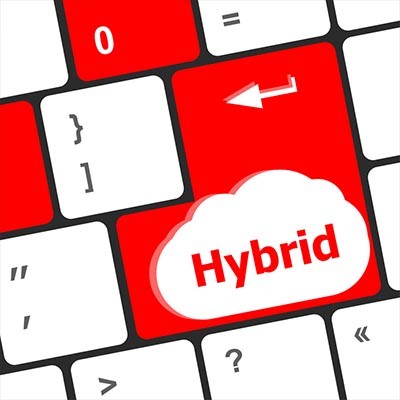SouthBridge Consulting Blog
The cloud can bring numerous benefits to a business. Public cloud offerings can reduce technology costs, provide scalability and flexibility to a business’ computing infrastructure, promote collaboration, protect your business from data loss, and much, much more. What it cannot do, however, is guarantee the control some organizations wish to have over their technology infrastructure. Some businesses prioritize that control, while others are bound by industry and government-induced regulations. For those businesses, there is the hybrid cloud.
Business is never quite as simple as it’s made out to be, and nowhere is this more true than with your organization’s IT. Today we will be covering some of the most important parts of your IT’s decision making that will need to be addressed, questions and concerns included, especially in regard to business-critical functions.
Manufacturing products is still a major part of the western economies; and, like other businesses, manufacturers are using information technology to fuel and manage their supply chains and business processes. We’ll take a short look at what IT manufacturers use, and how it helps them forge their business ahead.
Businesses today are doing more than ever to utilize the data they take in, and it shows. They are operating with more knowledge about their business, and thus are able to successfully create a usable knowledge base that, for some, will allow them to predict positive and negative market dynamics fairly accurately. After seeing how this platform can positively affect individual businesses, many other businesses are taking to the strategies. The problem that many businesses encounter, however, is that they are woefully unprepared to utilize analytics; or, they read too far into them. Today, we’ll take a look at data analytics and confront some of the problem's businesses are having.
Businesses spend a lot of time thinking about new technology solutions, but new organizations in particular need all of the tools they can get to be competitive in the competitive marketplace. The cloud is one of those tools that will continue to grow alongside your business provided you take measures to keep it flexible enough to change as needed. We’ll help you understand how the cloud can be great for new businesses, as well as some of the solutions you can take advantage of through it.
Private cloud computing is on the rise, and it’s for a good reason. Data security is a major problem for countless businesses out there, and in the wake of growing concerns over privacy and security threats, it has urged organizations to take it more seriously than ever before. Putting together a comprehensive private cloud system has its fair share of challenges, but if done properly, it can solve the data security problem as well.
If you’ve been in business for a while, there are devices on your network that see little to no use. Even for the most frugal business, due to the fact that technology eventually winds up being arbitrary thanks to the continued development (and deployment) of more powerful solutions, there will always be situations where you have devices that do nothing but take up space. You can reduce the chances of this happening by finding the right IT for the job the first time, while sparingly implementing only IT solutions that will provide a return on your investment.
You’d be hard-pressed to find a business these days that doesn’t use the cloud in some way or another. Before investing in the right cloud solutions, it’s important that your organization considers several factors. Here are three of the most common ones that your business should consider before investing in and implementing a new cloud service.
Chromebooks might be simple, but they aren’t as limited as you might think they are. They might have once been limited, but more recent models are much more capable of accomplishing just as much, if not more, than any of their previous iterations. Here are some of the most common misconceptions that people have about Chromebooks.
This guide was created so that business owners, office managers, and IT departments can provide it as an educational resource to showcase some of the most basic IT security practices that can be implemented in your workplace. We recommend printing this out and handing it out to your staff for maximum results.
What one organization considers a disaster might be much different than what another business might see as disastrous. Perhaps one sees the loss of a few hours and a few files as something that can be recovered, while another sees every lost moment and each iota of data as a catastrophe. Whichever camp you find yourself in, you need to be able to do two things: first, gauge how serious a given data loss disaster is, and secondly, establish what must be done to get back in action following said disaster.
There’s no denying that digital records have quite a few advantages over paper documentation. Benefits of ‘going paperless’ include simplified search capabilities, more efficient storage, heightened security and automated backup capabilities. There are plenty of sources around the Internet that discuss making the switch to paperless documentation, but to keep your business documents safe, it is better to know what you’re getting into.
When tablets first hit the market, the general prediction was that they would eventually replace PCs as the de facto device for computing, However, based on their steadily declining sales, this prediction seems to be a little off base--but, why? A closer examination provides some insight into why tablet sales have dipped.













